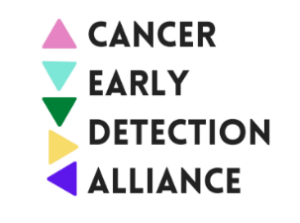
The Cancer Early Detection Alliance will focus on improving equitable access to early cancer screening through legislative and regulatory efforts.
The Colon Cancer Coalition is pleased to be a founding member of the Cancer Early Detection Alliance (CEDA), a unique collaboration of patient, provider and industry advocates, all of whom have significant expertise in cancer care and early detection. CEDA is committed to using its collective voice to identify and advance policies that remove barriers to cancer screening, eliminate racial and ethnic disparities in cancer screening, and improve access to innovations in early cancer detection to save lives.
 “The Colon Cancer Coalition is passionate about supporting access to safe and effective cancer screening for all types of cancer. CEDA provides an important opportunity to work with our peers to accomplish this,” states Chris Evans, Colon Cancer Coalition president.
“The Colon Cancer Coalition is passionate about supporting access to safe and effective cancer screening for all types of cancer. CEDA provides an important opportunity to work with our peers to accomplish this,” states Chris Evans, Colon Cancer Coalition president.
CEDA’s mission is to promote and expand access to quality, equitable early cancer detection and care, with a specific focus on reaching underserved communities and addressing racial and ethnic disparities. Founding members of CEDA are the American Osteopathic Association (AOA), American Urological Association (AUA), Colon Cancer Coalition, Freenome, Guardant Health, LUNGevity, Ovarian Cancer Research Alliance, Prevent Cancer Foundation, and ZERO – The End of Prostate Cancer.
“Improving access to early cancer detection services calls for a ‘big tent.’ CEDA enables us to band together to advance and improve policies that will save lives,” said Jody Hoyos, President & COO of the Prevent Cancer Foundation.
“CEDA’s focus on underserved communities and eliminating racial and ethnic disparities is a critical reason for ZERO’s participation in the alliance,” said Jamie Bearse, CEO of ZERO – The End of Prostate Cancer. “Prostate cancer disproportionately impacts Black men, who are 2.2 times as likely to die of prostate cancer and much more likely to die of low grade disease. This makes early detection among this high risk group, in particular, absolutely vital.”
Initial CEDA priorities will focus on how current mechanisms that influence access and uptake of early cancer screening, such as United States Preventive Services Task Force (USPSTF) recommendations, can be adapted to better reflect patient needs and the rapid pace of research and innovation. As part of this work, CEDA will explore regulatory and legislative opportunities to ensure patients receive timely access to new screening tools once approved for use.
For more information information on CEDA or to join the alliance, visit cedalliance.org.



